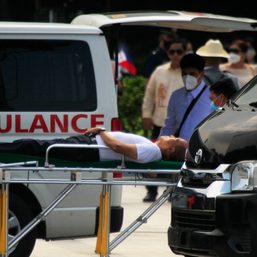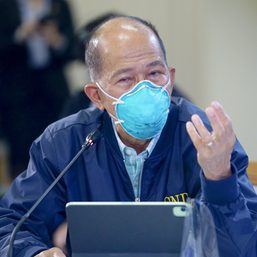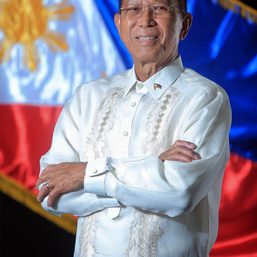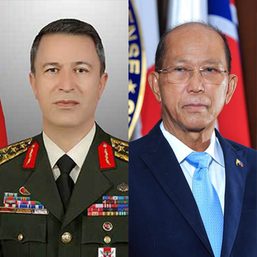SUMMARY
This is AI generated summarization, which may have errors. For context, always refer to the full article.
Social media should not be covered by the controversial Anti-Terror Law, Department of National Defense (DND) Secretary Delfin Lorenzana said on Wednesday, August 5.
“No, the ATL should not regulate social media. It is not part of its mandate and it would violate freedom of speech and discourse,” Lorenzana said in a text message to reporters.
Why does this matter?
Lorenzana was reacting to the backlash after the new Armed Forces of the Philippines (AFP) chief, Lieutenant General Gilbert Gapay, said on Monday, August 3, that they would recommend to the Anti-Terror Council that the Anti-Terror Law regulate social media.
As the DND chief, Lorenzana takes part in the crafting of the law’s implementing rules and regulations, which is where Gapay would have wanted to put provisions on social media regulation.
Gapay clarifies
Lorenzana said he spoke with Gapay as he was also “surprised” by his statement. The general supposedly clarified with Lorenzana that he was referring to placing provisions regarding the darknet— a network in the internet that is difficult to access where a lot of illicit activities occur, including coordination for terrorist attacks.
“But even this is difficult to regulate because it is underground and operates illegally,” Lorenzana noted.
What the law says
The anti-terror law does not explicitly say that it covers social media use, only “writings.” Lawyers have earlier warned that the law could be used to go after critics of the government on social media. (READ: Beware of that two-faced clause in the anti-terror law)
So far, the government has been arresting critics over social media posts through the cyber libel law and the Revised Penal Code’s provision on inciting to sedition. If used in the same fashion, the anti-terror law can deliver harsher arrests and penalties, including detention without a court-issued warrant for as long as 24 days. – Rappler.com
Add a comment
How does this make you feel?





There are no comments yet. Add your comment to start the conversation.